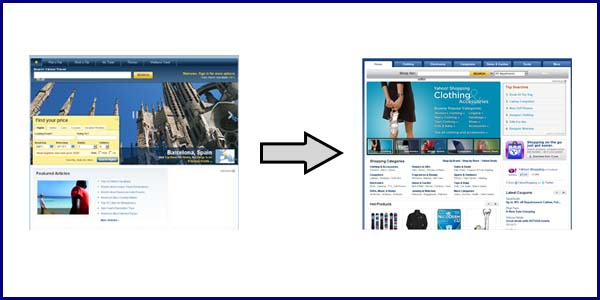
It isn’t a coincidence that many websites have extremely similar designs. Go ahead – pick an industry and search for the top five brands. You’ll probably notice a wide array of similarities in their layouts, pictures and user interfaces. Although many of these sites will claim that market research lead them to a similar site designs, this isn’t always the case.
Not only are ‘cookie-cutter’ templates widely utilized, but many designers also make it common practice to pick and choose their favorite features from other popular sites.
This makes sense from a strategic standpoint as far as giving your user base what they want. If a specific design is working great for a competitor, some basic elements of the design will also probably work for your site.
However, if a designer takes it too far and completely rips off another site, this can quickly spiral into DMCA takedown notices, public accusations and costly lawsuits.
The same goes for a website’s copy or messaging.
Because taking elements from a design is so commonplace in the industry, grabbing snippets of copy is also becoming a problem nowadays. To save time and money, many site developers will simply ‘copy and paste’ a similar website’s messaging into their own site.
This tactic simply constitutes plagiarism and can be harmful to the offended company on a number of levels.
Creating unique copy for a website is integral in distinguishing a brand from its competitors. When someone steals the exact messaging from a website, it loses a distinct value proposition that would otherwise help garner customers or viewership.
Some might think that stealing the copy from a ‘boring’ industry website is less egregious than plagiarism involving literature, books or magazines. However, the nature of the content is irrelevant – in either case content is getting ripped off and is being used under false pretenses.
No matter the industry, it can be beneficial for a website to ensure their content’s integrity by utilizing plagiarism detection software. iThenticate can scour the web (as well as massive offline databases) and highlight any duplicate content matches, ranging from entire web pages of duplicate copy to a single similar sentence fragment on another site.
Related
Topics: Social Media,Technology